Versuchen GOLD - Frei
THE LONG WAY
The New Yorker
|January 15, 2024
Adventures of a teen-age world traveller.

When I was twelve years old, in 1969, my family moved to Reston, Virginia. It was a planned community near Washington, D.C.—a suburban utopia where C.I.A. agents and Foreign Service officers like my father could raise their families. I hated Reston, and hated living in the United States. We had stayed in Northern Virginia for part of the previous year, between stints in Taiwan and Indonesia. During our time there, Martin Luther King, Jr., was assassinated—one of the few times I saw my parents cry. While I was out selling “I Have a Dream” stickers in King’s memory to support the Poor People’s Campaign, a neighbor sicced his dogs on me.
I ran away from home several times, and so my mother and father devised a solution for my restlessness: they sent me to stay for a year with an aunt and uncle in Liberia. I spent most of it ducking my chaperons to travel into the Liberian wilderness and around East Africa, and when the time was up I told my parents that I didn’t want to leave. I noted that a Swiss adventurer had passed through Monrovia on his way to crossing the Sahara by camel and had invited me to join him. My parents pointed out that I hadn’t yet finished middle school. Crestfallen, I went back home.
I got into more trouble as I entered high school, mostly for drugs; I did acid and pot, like everyone else, but a girl once shot me up with heroin before archery class. Several kids I knew died from overdoses. After that, my parents decided to move again, and began looking for a calmer place to live. My father took early retirement from his Foreign Service job—thinking, he often said later, that he needed to “save me.” But he and my mother were also trying to save their marriage, which had become increasingly strained during twenty years of moving around the world.
Diese Geschichte stammt aus der January 15, 2024-Ausgabe von The New Yorker.
Abonnieren Sie Magzter GOLD, um auf Tausende kuratierter Premium-Geschichten und über 9.000 Zeitschriften und Zeitungen zuzugreifen.
Sie sind bereits Abonnent? Anmelden
WEITERE GESCHICHTEN VON The New Yorker

The New Yorker
THAT'S THE WAY LOVE GOES
“Love Island USA” reaches its conclusion.
6 mins
July 28, 2025

The New Yorker
THE CASE FOR LUNCH
Notes on an underappreciated meal.
19 mins
July 28, 2025
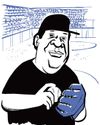
The New Yorker
DEPT. OF MASKED MEN: FOUL BALL
Since President Trump took office, agents from Immigration and Customs Enforcement have swarmed areas with immigrant populations, questioning people and making arrests. They’ve patrolled near schools and raided a homeless shelter. They arrested a four-year-old, two students of New York City public schools, and an Army veteran who happened to be Latino. Recently, masked and armed ICE agents descended on a baseball field in Riverside Park. They questioned a dozen or so eleven-to fourteen-year-olds who’d just finished batting practice, and left only after a confrontation with their coach, Youman Wilder, whom they threatened with arrest. He said, “I’m willing to die to make sure these kids can get home,” he recounted afterward.
3 mins
July 28, 2025

The New Yorker
GOINGS ON
What we're watching, listening to, and doing this week.
3 mins
July 28, 2025
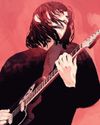
The New Yorker
JERSEY BOY
The sleazy, vaguely unsettling sounds of Mk.gee.
5 mins
July 28, 2025
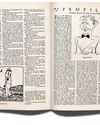
The New Yorker
Stephen Colbert on Kenneth Tynan's "Fifteen Years of the Salto Mortale"
When Mr. Remnick asked me to write a seven-hundred-and-twenty-five-word Take on Kenneth Tynan’s 1978 Profile of Johnny Carson, I said, “My honor, cher David.” (New Yorker editors love when you use foreign words. They’re weak for anything italicized. Anything.) “I write a late-night show. I eat seven hundred words for breakfast.” In actuality, I host a late-night show and have a low-glycemic smoothie for breakfast. My doctor says the words were clogging my carotid, and, after reading “Fifteen Years of the Salto Mortale,” I need a statin.
3 mins
July 28, 2025

The New Yorker
THE TALK OF THE TOWN
COMMENT - THE EPSTEIN PROBLEM
4 mins
July 28, 2025
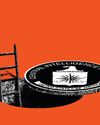
The New Yorker
THE SECRET KEEPERS
The C.I.A. is accustomed to threats—but now they're coming from above.
18 mins
July 28, 2025
The New Yorker
SUPER-FUN ROMANTIC SEXY BEACH READ
To my editor:Thank you for your notes on the new manuscript. I certainly take your point that death, as a theme, isn't a traditional beach read. And I like your idea for \"more lightness and fun, and less glioblastoma.\" I'm curious, though, if you're open to other types of deadly cancers. Also, will definitely \"sex it up,\" but still think that could include crying or feelings of profound sadness and despair while on the beach on a summer vacation.
3 mins
July 28, 2025
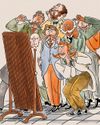
The New Yorker
THE WHISKER WARS
The social history of a peculiar American fascination.
9 mins
July 28, 2025

